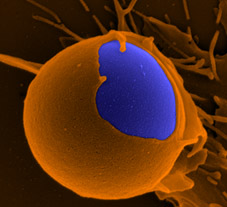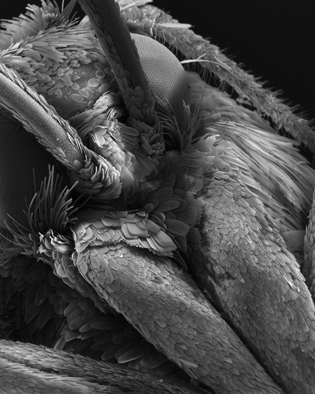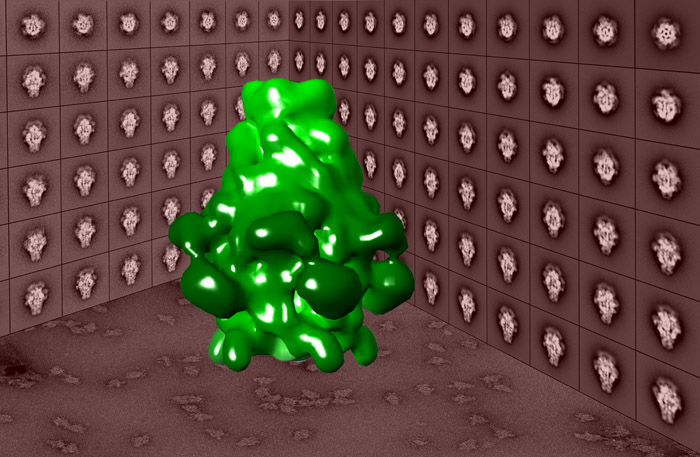Microscopes are usually associated with science rather than art, but a new exhibition involving two IMB researchers is demonstrating the beauty that can be found down the lens and in the lab.
The Incredible Inner Space exhibition, on display at Questacon in Canberra until the end of January 2012, showcases 28 images taken by scientists from research organisations across Australia.
The four images by IMB researchers represent projects seeking to provide a better understanding of the immune system and improve insecticides.
“The images are stunning, but they are also important sources of data for researchers,” participating scientist Darren Brown said.
“My image, Search and Destroy!, shows how an immune cell attacks foreign objects in the body, completely engulfing them so they can be broken down deep within the cell.
“This process helps keep the body free from infection, and allows us a better understanding of infectious disease and how we can fight it.”
Mr Brown also has two other images in the exhibition, one of a moth’s face and one of its proboscis. IMB’s Dr Michael Landsberg produced an image of a protein that is deadly to insects, which he is studying in collaboration with New Zealand AgResearch.
“Working out the structure of different proteins is really helpful to scientists in understanding how they function,” Dr Landsberg said.
“The protein in my image is toxic to some insect pests, so could be used to protect food crops.
“Because it has a biological origin – the protein is produced by bacteria – an insecticide that incorporates it should be more environmentally friendly and safer to humans, wildlife and beneficial insects.”
The exhibition was organised by the Australian Microscopy and Microanalysis Facility, which provides advanced microscopy equipment in six nodes nationwide, including one at UQ.
Images can be viewed online at – http://www.ammrf.org.au/innerspace/index.html
Media: Bronwyn Adams (07 3346 2134, b.adams@imb.uq.edu.au)
 |
 |
 |
| Search and destroy! - Darren Brown | Moth face - Darren Brown | Insect toxic protein - Dr Michael Landsberg |



